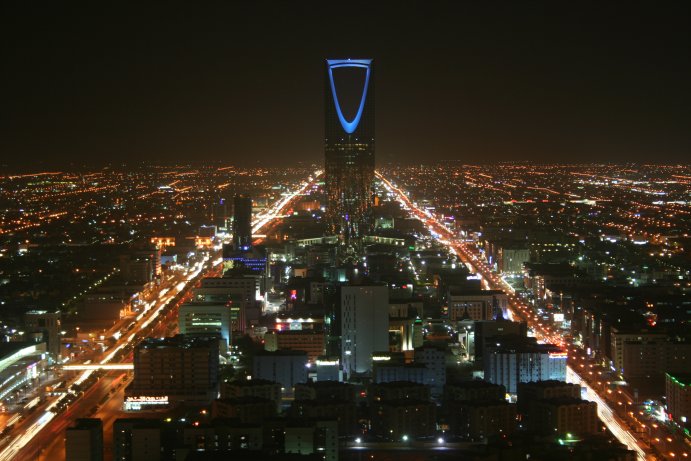Since late 2016 the financial media has been abuzz about what would likely be the biggest initial public offering (IPO) ever: The sale of 5 percent of the world’s largest oil company, Saudi Aramco, which is wholly owned by the government of Saudi Arabia. The IPO with its required disclosures would shed light on the inner workings of the company for the first time since it was nationalized in 1980 and lead to independent verification of its oil reserves and other assets.
It would be a large first step in unmasking the murky world of national oil companies (NOCs), the reserves of which are thought to represent 90 percent of the world’s total reserves of oil and natural gas according to one estimate.
With estimates that Saudi Aramco is worth $2 trillion, the sale of 5 percent to public shareholders potentially represents $100 billion, a valuation that would make such an IPO an all-time record and result in roughly $1 billion in fees for the lucky bankers handling the deal.
All that anticipation, however, has now come crashing down as the Saudi government seeks the funds it might have gotten from an IPO through other avenues. So, what happened?
First, oil prices rose significantly. When the Saudi government officially confirmed that it was seeking an IPO for Aramco in October 2016, Brent crude, the world benchmark, averaged just under $50 per barrel that month. While the IPO was being considered earlier that year, oil had dropped below $30. Last week it closed just below $75.
The government was thought to be desperate to reduce its rising deficits—due in large part to a precipitous drop in oil prices—by selling a part of the company. That seems an unlikely reason for the sale since the Saudis have ample money in a sovereign wealth fund and substantial credit with major banks. The stated reason was a plan to diversify the Saudi economy.
With oil prices 50 percent higher than when the plan was proposed, rising revenues may be sufficient to justify waiting and may be able to provide investment funds for other purposes. (The Saudi government finances itself largely from oil revenues.)
Second, it’s possible the Saudis now believe that investors would not be willing to pay as much as the Saudis want for a variety of reasons that include:
- Concern about the stability of the Saudi regime (with whom investors would become business partners).
- The high taxes and royalties paid by the company to the government.
- The lack of diversification because almost all of Aramco’s operations are in Saudi Arabia and thus subject to upheavals and conflicts in the Middle East.
- The role of Saudi Arabia as an OPEC member and as the world’s largest swing producer which leads it to adjust its output for geopolitical reasons and not merely to maximize profits for the company.
These are merely a sampling of concerns discussed in the media.
But, I believe that perhaps the most important reason the Saudis are reconsidering the IPO is that the government simply does not want to subject the company to an independent audit that would for the first time since 1980 determine whether the country has been telling the truth about its oil reserves.
Saudi Arabia must have significant remaining reserves in order to pump at rates that make it the number one or number two producer in the world, alternating with Russia for the top position. But that doesn’t really tell us the relative size of Saudi reserves since Russia claims less than a third of the reserves that Saudi Arabia does and yet produces nearly the same amount of oil on a daily basis.
Despite the fact that one of the world’s largest producers of oil has not been audited in 38 years, official sources of energy information such as the U.S. Energy Information Administration and the International Energy Agency have been taking Saudi Aramco’s public claims about its reserves at face value and including them in their official statistics.
In fairness, what choice do these agencies have? They have no standing or power to compel an independent audit.
It might not be so bad if Saudi Arabia were the only case of this. But wherever there exists a government-owned oil company that monopolizes oil development in a nation, there is likely to be secrecy about reserves. The national oil companies of Iran, Iraq, Kuwait, and Venezuela represent some of largest corporations in the world. But because they are not publicly traded, they are not subject to the kind of scrutiny that large international companies such as ExxonMobil and Shell are. Wikipedia provides a lengthy list of NOCs demonstrating just how far the shroud of secrecy extends across the industry.
(Of course, not all these companies escape scrutiny. For example, the Argentine national oil company, known as YFP, in which the government holds a 51 percent stake, is traded on the New York Stock Exchange and thus required to adhere to disclosure and audit standards for listed companies. But most national oil companies are not publicly traded.)
The recent retreat of Saudi Arabia from its planned IPO is not only an important financial event. It’s an important informational event in that it highlights the opacity of the world’s oil producers. It should remind us that the numbers we accept from major governmental and international organizations regarding oil reserves worldwide are largely based on unverified sources, namely, the word and only the word of most of the world’s national oil companies.
That we continue to plan our futures—our cities, our transportation systems, or industrial developments—based on such numbers should be a cause for alarm and not the complacency we are currently exhibiting.
Photo: Kingdom Centre, Riyadh, Saudi Arabia. Taken by BroadArrow in 2007.Via Wikimedia https://commons.wikimedia.org/wiki/File:Kingdom_Tower_at_night.JPG?fastcci_from=63418&c1=63418&d1=15&s=200&a=fqv






